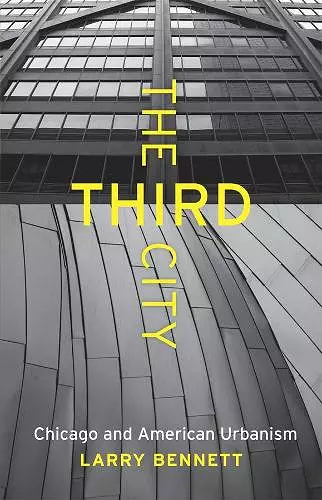The Third City
Chicago and American Urbanism
Format:Hardback
Publisher:The University of Chicago Press
Published:30th Nov '10
Currently unavailable, and unfortunately no date known when it will be back

Our traditional image of Chicago - as a gritty metropolis carved into ethnically defined enclaves where the game of machine politics overshadows its ends - is such a powerful shaper of the city's identity that many of its closest observers fail to notice that a new Chicago has emerged over the past two decades. Larry Bennett here tackles some of our more commonly held ideas about the Windy City - inherited from such icons as Theodore Dreiser, Carl Sandburg, Daniel Burnham, Robert Park, Sara Paretsky, and Mike Royko - with the goal of better understanding Chicago as it is now: the third city. Bennett calls contemporary Chicago the third city to distinguish it from its two predecessors: the first city, a sprawling industrial center whose historical arc ran from the Civil War to the Great Depression; and the second city, the rustbelt exemplar of the period from around 1950 to 1990. The third city features a dramatically revitalized urban core, a shifting population mix that includes new immigrant streams, and a growing number of middle-class professionals working in new economy sectors. It is also a city utterly transformed by the top-to-bottom reconstruction of public housing developments and the ambitious provision of public works like Millennium Park. It is, according to Bennett, a work in progress spearheaded by Richard M. Daley, a self-consciously innovative mayor whose strategy of neighborhood revitalization and urban renewal is a prototype of city governance for the twenty-first century. "The Third City" ultimately contends that to understand Chicago under Daley's charge is to understand what metropolitan life across North America may well look like in the coming decades.
"This is a major new assessment, rich with fresh insights, of Chicago since the last decades of the twentieth century, when the city entered a whole new phase of development that had been long in coming, as it shed virtually all traces not only of the shock city of its formative years but also of the industrial colossus and city of neighborhoods it once was." - Carl Smith, author of The Plan of Chicago: Daniel Burnham and the Remaking of the American City"
ISBN: 9780226042930
Dimensions: 22mm x 14mm x 2mm
Weight: 425g
256 pages